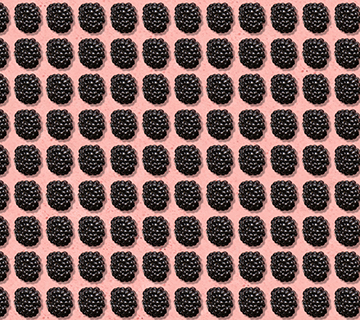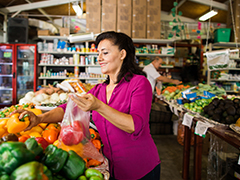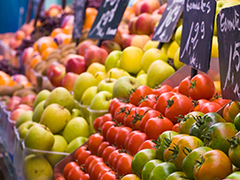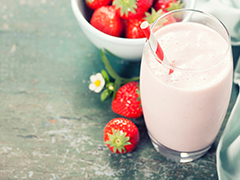Fresh vs. Frozen: What’s Better?

There’s no denying that fruits and vegetables are some of the healthiest foods we can eat. They’re full of vitamins, minerals and antioxidants—they can even protect against heart disease. But with winter in full swing, access to fresh produce can be a challenge. Frozen fruits and vegetables are a convenient alternative, but what are you really getting? Here’s what you need to know.
Harvesting
Frozen fruits and vegetables are picked at peak ripeness, when they’re the most nutritious. They’re usually washed, cut, frozen and packaged within a few hours of being harvested. Meanwhile, fresh fruits and vegetables are picked before they’re ripe. This gives them time to ripen on the way to the grocery store. But they can spend anywhere from 3 days to several weeks in transit, and then end up spending additional days on display and then up to another week before being eaten.
Processing
Freezing actually helps retain most of the nutrient content of fruits. Vegetables are typically blanched (boiled in water for a short time) before being frozen and this process can result in the loss of some nutrients, but this process also kills any harmful bacteria and prevents the loss of flavor, color and texture.
Storage
Fresh produce starts losing moisture right after harvesting, which increases the risk for spoiling and a drop in nutrients. Research has shown that refrigerating some fruits for 3 days reduces nutrient levels more than those of frozen varieties. Plus, vegetables stored in the fridge or at room temperature have been shown to lose antioxidants. That’s why it’s always best to eat fresh produce as soon as possible. Frozen produce only begins to lose nutrients if stored for more than a year.
Nutrients
While it’s best to eat fresh produce right away, most studies show that fresh and frozen are nutritionally similar. Freezing can preserve some of the nutrients lost in fresh produce while in transit or stored. In addition, studies show that vitamin A, vitamin E, minerals and fiber are similar in both varieties.
When it comes to vitamin C, some frozen produce might actually have higher levels than fresh. Frozen peas or spinach have more vitamin C than fresh varieties that have been on display and then stored at home for several days.
Bottom line: if you have access to fresh produce, eat it as soon as possible. But if frozen is your best option, feel confident that you’re still eating nutritious.


